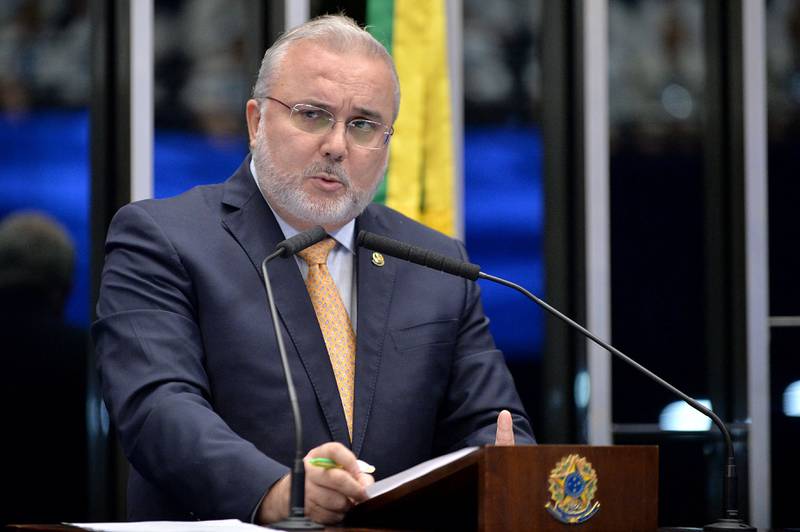President-elect Lula da Silva names Jean Paul Prates to head the company amid renewables push
Brazil's president-elect Lula da Silva, announced that senator Jean Paul Prates is his candidate for chairman of Petrobras. AFP
President-elect Luiz Inacio Lula da Silva has selected a senator and former Petrobras official to lead Brazil’s state-controlled oil company, with the aim of turning it into a renewable energy powerhouse.
Jean Paul Prates, a senator for Lula’s Workers’ Party, confirmed Mr da Silva's invitation in a note sent from his press office. Mr da Silva congratulated Mr Prates on Twitter, emphasising that he is an “expert in the energy sector”.
He will take over a company that has been criticised for showering investors with record dividends while failing to invest sufficiently in oil refining, wind and solar.
Mr Prates has said Petrobras’s current management is steering the company “off a cliff” by narrowly focusing on oil and gas and neglecting the energy transition.
Mr Prates is viewed as a moderate member of the left-wing Workers’ Party, and his career in the senate will help him to manage an oil company that regularly comes under political pressure to contain fuel prices and create jobs.
In recent years, Petrobras has won praise from investors for focusing on its most profitable oil projects in deepwater of the South Atlantic while selling off lower-margin assets such as pipelines, refineries and mature oilfields on land.
The strategy has allowed it to cut its debt and increase dividend payments. Financial markets are concerned profits will plummet under Mr da Silva as he directs the company to invest in other areas more aligned with his wider industrial policies.
“All oil companies are turning into energy companies, and it isn’t just talk,” Mr Prates said at a press conference in December. “None of this is happening at the right scale at Petrobras.”
Mr Prates was on point for Mr da Silva's energy team during the campaign and was in charge of talking to investors about oil and energy. He worked in Petrobras’s international division in the 1980s, then became an oil consultant and helped to draft legislation in 1997 that removed Petrobras’s monopoly on exploration.
In an August interview, Mr Prates said Petrobras under Mr da Silva would reverse years of cost cuts and spend big on refining and renewables, and also rebuild international operations that were curtailed in recent years.
He envisages that within 30 years the company will be investing as much in clean energy as it does in fossil fuels.
Mr da Silva is also expected to revamp local content rules or the percentage of goods and services for oil projects that need to be sourced from Brazil in order to boost domestic employment. Any increase in that percentage would be a concern for the oil industry because similar policies have led to cost inflation in the past.
“We must go back to being the great Petrobras we used to be,” Mr Prates said in August. “It needs to transform itself into a global player in the energy transition.”
In a statement, Petrobras said that the company had not been formally notified about Mr Prates’s appointment and emphasised that Mr da Silva's nominee is subject to internal governance procedures and the approval of the board.
